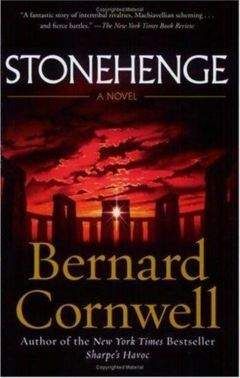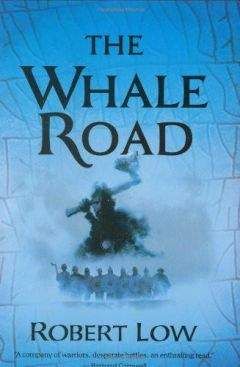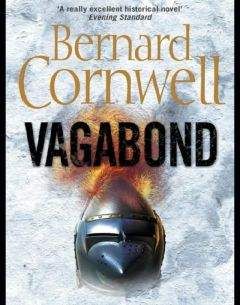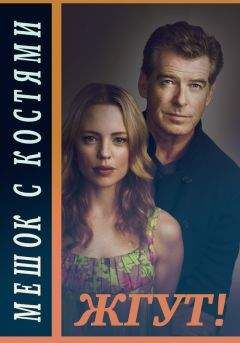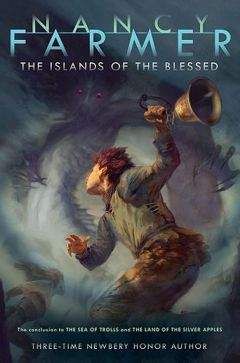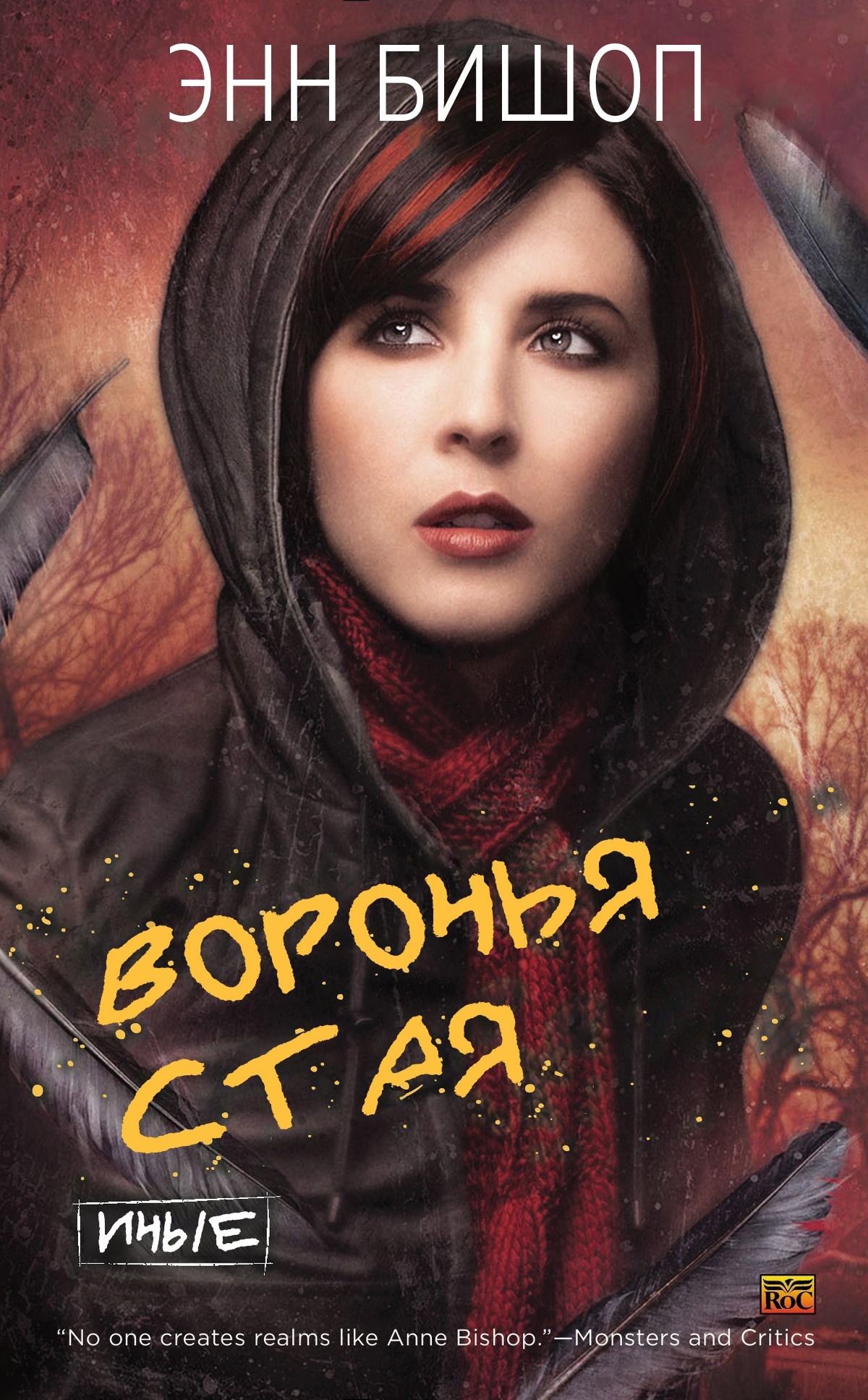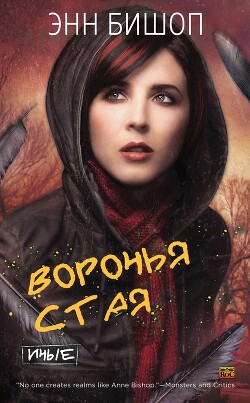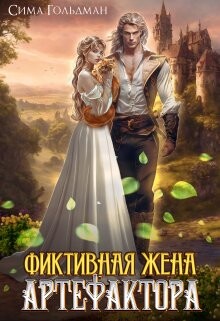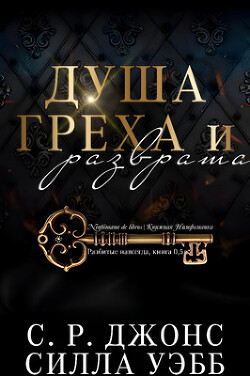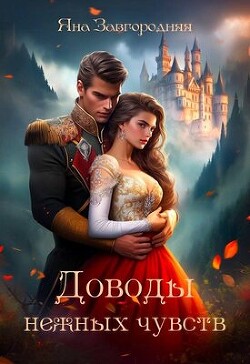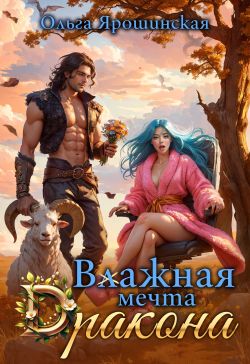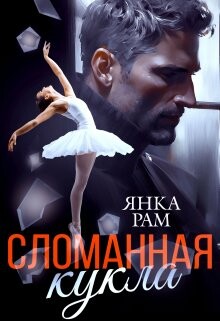Bernard Cornwell - The Grail Quest 1 - Harlequin
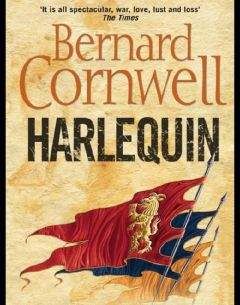
Помощь проекту
The Grail Quest 1 - Harlequin читать книгу онлайн
Stay in line!“ the Earl of Northampton shouted. More horses were threading through the pits, and there were no archers in front to slow them now. These were the third and fourth ranks of the French charge. They had suffered less damage from arrows and they came to help the men hacking at the English line that still bristled with lances. Men roared their battle cries, hacked with swords and axes, and the dying horses dragged down the English lances so that the French could at last close on the men-at-arms. Steel rang on steel and thumped on wood, but each horseman was faced by two or three men-at-arms, and the French were being dragged from their saddles and butchered on the ground. No prisoners!” the Earl of Northampton shouted. No prisoners!" Those were the King's orders. To take a man prisoner meant possible wealth, but it also required a moment of courtesy to enquire whether an enemy truly yielded and the English had no time for such civility. They needed only to kill the horsemen who kept streaming up the hill.
The King, watching from beneath the mill's furled sails, which creaked as the wind twitched their tethers, saw that the French had broken through the archers only on the right, where his son fought and where the line lay closest to the French and the slope was gentlest. The great charge had been broken by arrows, but more than enough horsemen had survived and those men were spurring towards the place where the swords rang. When the French charge began it had been spread all across the battlefield, but now it shrank into a wedge shape as the men facing the English left swerved away from the archers there and added their weight to the knights and men-at-arms who hacked at the Prince of Wales's battle. Hundreds of horsemen were still milling about in the valley's muddy bottom, unwilling to face the arrow storm a second time, but French mar-shals were re-forming those men and sending them up the hill towards the growlng melee that fought under the banners of Alencon and the Prince of Wales.
Let me go down there, sire," the Bishop of Durham, looking ungainly in his heavy mail and holding a massive spiked mace, appealed to the King.
They're not breaking,“ Edward said mildly. His line of men-at-arms was four ranks deep and only the first two were fighting, and fighting well. A horseman's greatest advantage over infantry was speed, but the French charge had been sapped of all velocity. The horsemen were being forced into a walk to negotiate the corpses and pits, and there was no room beyond to spur into a trot before they were met by a vicious defence of axes, swords, maces and spears. Frenchman hacked down, but the English held their shields high and stabbed their blades into the horses” guts or else sliced swords across hamstrings. The destriers fell, screaming and kicking, breaking men's legs with their wild thrashing, but every horse down was an added obstacle and, fierce as the French assault was, it was failing to break the line. No English banners had toppled yet, though the King feared for his son's bright flag that was closest to the most violent fighting.
Have you seen the oriflamme?“ he asked his entourage. It fell, sire,” a household knight answered. The man pointed down the slope to where a heap of dead horses and broken men were the remnants of the first French attack. Somewhere there, sir. Arrows."
God bless arrows," the King said.
A conroi of fourteen Frenchmen managed to negotiate the pits without harm. Montjoie Saint Denis!" they shouted, and couched their lances as they spurred into the melee, where they were met by the Earl of Northampton and a dozen of his men.
The Earl was using a broken lance as a pike and he rammed the splintered shaft into a horse's chest, felt the lance slide off the armour concealed by the trapper, and instinctively lifted his shield. A mace cracked on it, driving one spike clean through the leather and willow, but the Earl had his sword dangling by a strap and he dropped the lance, gripped the sword's hilt and stabbed it into the horse's fetlock, making the beast twist away. He dragged the shield clear of the mace's spikes, swung the sword at the knight, was parried, then a man-at-arms seized the Frenchman's weapon and tugged. The Frenchman pulled back, but the Earl helped and the Frenchman shouted as he was tumbled down to the English feet. A sword ran into the armour gap at his groin and he doubled over, then a mace crushed his helmet and he was left, twitching, as the Earl and his men climbed over his body and hacked at the next horse and man.
The Prince of Wales spurred into the melee, made conspicuous by a fillet of gold that circled his black helmet. He was only sixteen, well built, strong, tall and superbly trained. He fended an axe away with his shield and rammed his sword through another horseman's mail.
off the bloody horse!“ the Earl of Northampton shouted at the Prince. Get off the bloody horse!” He ran to the Prince, seized the bridle and tugged the horse away from the fight. A Frenchman spurred in, trying to spear the Prince's back, but a man-at-arms in the Prince's green and white livery slammed his shield into the destrier's mouth and the animal twitched away.
The Earl dragged the Prince back. They see a man on horseback, sire,“ he shouted up, and they think he's French.” The Prince nodded. His own household knights had reached him now and they helped him down from the saddle. He said nothing. If he had been offended by the Earl, he hid it behind his face-piece as he went back to the melee. Saint George! Saint George!" The Prince's standard-bearer struggled to stay with his master, and the sight of the richly embroidered flag attracted still more screaming Frenchmen.
In line!“ the Earl shouted. In line!” but the dead horses and butchered men made obstacles that neither the French nor English could cross and so the men-at-arms, led by the Prince, were scrambling over the bodies to reach more enemies. A disembowelled horse trailed its guts towards the English, then sank onto its forelegs to pitch its rider towards the Prince, who rammed the sword into the man's helmet, mangling the visor and starting blood from the eyeholes. Saint George!" The Prince was exultant and his black armour was streaked with enemy blood. He was fighting with his visor raised, for else he could not see properly, and he was loving the moment. The hours and hours of weapons practice, the sweating days when sergeants had drilled him and beat at his shield and cursed him for not keeping his sword point high, were all proving their worth, and he could have asked for nothing more in this life: a woman in the camp and an enemy coming in their hundreds to be killed.
The French wedge was widening as more men climbed the hill. They had not broken through the line, but they had drawn the two front English ranks across the tideline of dead and wounded, and thus scattered them into groups of men who defended themselves against a welter of horsemen. The Prince was among them. Some Frenchmen, unhorsed but unwounded, were fighting on foot. Forward!" the Earl of Northampton shouted at the third rank. It was no longer possible to hold the shield wall tight. Now he had to wade into the horror to protect the Prince, and his men followed him into the maelstrom of horses, blades and carnage. They scrambled over dead horses, tried to avoid the beating hooves of dying horses and drove their blades into living horses to bring the riders down to where they could be savaged.
Each Frenchman had two or three English footmen to contend against, and though the horses snapped their teeth, reared and lashed their hoofs, and though the riders beat left and right with their swords, the unmounted English invariably crippled the destri-ers in the end, and more French knights were pitched onto the hoof-scarred grass to be bludgeoned or stabbed to death. Some Frenchmen, recognizing the futility, spurred back across the pits to make new con rois among the survivors. Squires brought them spare lances, and the knights, rearmed and wanting revenge, came back to the fight, and always they rode towards the prince's bright flag. The Earl of Northampton was close to the flag now. He hammered his shield into a horse's face, cut at its legs and stabbed at the rider's thigh. Another conroi came from the right, three of its men still holding lances and the others with swords held far forward. They slammed against the shields of the Prince's bodyguard, driving those men back, but other men in green and white came to their help and the Prince pushed two of them out of the way so he could hack at a destrier's neck. The conroi wheeled away, leaving two of its knights dead.
Form line!“ the Earl shouted. Form line!” There was a lull in the fighting about the Prince's standard, for the French were regrouping.
And just then the second French battle, as large as the first, started down their hill. They came at a walk, knee to booted knee, lances held so close that a wind could not have passed between them. They were showing how it should be done.
The ponderous drums drove them on. The trumpets seared the sky.
And the French were coming to finish the battle.
Eight," Jake said.
Three," Sam told Will Skeat.
Seven," Thomas said. They were counting arrows. Not one archer had died yet, not from Will Skeat's band, but they were perilously low on arrows. Skeat kept looking over the heads of the men-at-arms, fearful that the French would break through, but the line was holding. Once in a while, when no English banner or head was in the way, an archer would loose one of the precious arrows at a horseman, but when a shaft wasted itself by glancing off a helmet Skeat told them to save their supply. A boy had brought a dozen skins of water from the baggage and the men passed the bags around.
Skeat lotted up the arrows and shook his head. No man had more than ten, while Father Hobbe, who admittedly had started with fewer than any of the men, had none.
Go up the hill, father,“ Skeat told the priest, and see if they're keeping any shafts back. The King's archers might spare some. Their captain's called Hal Crowley and he knows me. Ask him, anyway.” He did not sound hopeful. Right, lads, this way,“ he said to the rest and led them towards the southern end of the English line where the French had not closed, then forward of the men-at-arms to reinforce the archers who, as low on arrows as the rest of the army, were keeping up a desultory harassment of any group of horsemen who threatened to approach their position. The guns were still firing intermittently, spewing a noisome stench of powder smoke on the battle's edge, but Thomas could see little evidence that the ribalds were killing any Frenchmen, though their noise, and the whistle of their iron missiles, was keeping the enemy horsemen well away from the flank. We'll wait here,” Skeat said, then swore for he had seen the French second line leave the far hill crest. They did not come like the first, in ragged chaos, but steadily and properly. Skeat made the sign of cross. Pray for arrows,“ he said. The King watched his son fight. He had been worried when the Prince had advanced on horseback, but he nodded silent approval when he saw that the boy had possessed the good sense to dis-mount. The Bishop of Durham pressed to be allowed to go to Prince Edward's help, but the King shook his head. He has to learn to win fights.” He paused. I did." The King had no intention of going down into the horror, not because he feared such a fight, but because once entangled with the French horsemen he would not be able to watch the rest of his line. His job was to stay by the mill and trickle reinforcements down to the most threatened parts of his army. Men of his reserve continually pleaded to be allowed into the melee, but the King obstinately refused them, even when they complained that their honour would be smirched if they missed the fight. The King dared not let men go, for he was watching the French second battle come down the hill and he knew he must hoard every man in case that great sweep of horsemen battered through his line.
That second French line, almost a mile across and three or four ranks deep, walked down the slope where its horses had to thread the bodies of the slaughtered Genoese. Form up!" the conroi leaders shouted when the crossbowmen's bodies were behind them, and the men obediently moved knee to knee again as they rode into the softer ground. The hooves made hardly any sound in the wet soil so the loudest noises of the charge were the clink of mail, the thump of scabbards and the swish of trappers on the long grass. The drummers were still beating on the hill behind, but no trumpets called.
You see the Prince's banner?" Guy Vexille asked Sir Simon Jekyll, who rode beside him.
There.“ Jekyll pointed his lance tip to where the ragged fight was hottest. All Vexille's conroi had baffles on their lances, placed just back from the tip so that the wooden spears did not bury themselves in their victims” bodies. A lance with a baffle could be dragged free of a dying man and used again. The highest flag,“ Sir Simon added. Follow me!” Vexille shouted, and signalled to Henry Colley, who had been given the job of standard-bearer. Colley was bitter at the assignment, reckoning he should have been allowed to fight with lance and sword, but Sir Simon had told him it was a privilege to carry the lance of Saint George and Colley was forced to accept the task. He planned to discard the useless lance with its red flag as soon as he entered the melee, but for now he carried it high as he wheeled away from the well organized line. Vexille's men followed their banner, and the departure of the conroi left a gap in the French formation and some men called out angrily, even accusing Vexille of cowardice, but the Count of Astarac ignored the jibes as he slanted across the rear of the line to where he judged his horse-men were precisely opposite the Prince's men and there he found a fortuitous gap, forced his horse into the space and let his men follow as best they could.
Thirty paces to Vexille's left a conroi with badges showing yellow hawks on a blue field trotted up the English hill. Vexille did not see Sir Guillaume's banner, nor did Sir Guillaume see his enemy's badge of the yale. Both men were watching the hill ahead, wonder-ing when the archers would shoot and admiring the bravery of the first charge's survivors who repeatedly withdrew a few paces, re-formed and recharged the stubborn English line. Not one man threatened to break the enemy, but they still tried even when they were wounded and their destriers were limping. Then, as the second French charge neared the line of Genoese crossbowmen killed by the English archers, more trumpets sounded from the French hill and the horses pricked back their ears and tried to go into the canter. Men curbed the destriers and twisted awkwardly in their saddles to peer through visor slits to find what the trumpets meant and saw that the last of the French knights, the King and his house-hold warriors, and the blind King of Bohemia and his companions, were trotting forward to add their weight and weapons to the slaughter. The King of France rode beneath his blue banner that was spattered with the golden fleur-de-lis, while the King of Bohemia's flag showed three white feathers on a dark red field. All the horsemen of France were committed now. The drummers sweated, the priests prayed and the royal trumpeters gave a great fanfare to presage the death of the English army.
The Count of Alencon, brother to the King, had begun the crazed charge that had left so many Frenchmen dead on the far slope, but the Count was also dead, his leg broken by his falling horse and his skull crushed by an English axe. The men he had led, those that still lived, were dazed, arrow stung, sweat-blinded and weary, but they fought on, turning their tired horses to thrash swords, maces and axes at men-at-arms, who fended the blows with shields and raked their swords across the horses" legs. Then a new trumpet called much closer to the melee. The notes fell in urgent triplets that followed one after the other, and some of the horsemen regis-tered the call and understood they were being ordered to withdraw. Not to retreat, but to make way, for the biggest attack was yet to come.
